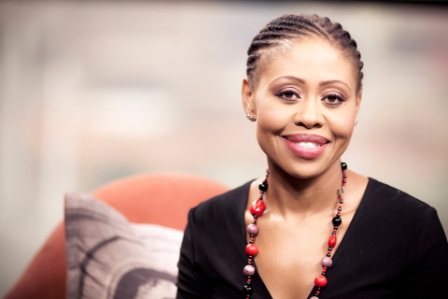South2North’s Redi Tlhabi asks if chess can help maths education
This Friday on Al Jazeera’s talk show South2North, Redi Tlhabi looks at the impact mathematics has on education.
“If mathematics is a word that fills you with fear, you’re not alone,” says Redi at the start of the show, which is broadcast from Johannesburg, South Africa. “According to a pair of researchers in Chicago, a fear of maths can activate regions of the brain that are linked to physical pain. So why are we girls in particular so scared of sums and what impact is this having on education?”
Redi is joined by Grandmaster and former world chess champion Gary Kasparov; Professor Mamokgethi Phakeng, vice principal of research and innovation at The University of South Africa; and Tshepang Tlale, South Africa’s 16-year-old junior chess champion.
Gary believes chess can help prepare children for the challenge of mathematics by teaching them about logic, concentration, and spatial concepts. “The best age to introduce chess is grades 1-3,” he says. “It’s like opening gates for education for kids. It sharpens their minds. All the tests show the dramatic increase both in maths and language. For me, chess is a tool; it’s like pre-education.”
Tshepang agrees. “Chess actually gave me that mental capacity to be able to concentrate more, to be able to take on lots of work and know how to handle it. In the game of chess, you must have strategies. Even when it comes to my exams, I must have a strategy. Apart from all the school stuff, it also teaches you discipline. It’s always one move at a time and you have to wait for your opponent to move back.”
However, while Mamokgethi believes introducing chess to schools could help, she says it’s “not going to solve our problems.” She highlights the importance of children learning maths in their first language, as well as the key role teachers’ play.
She denies that boys are naturally better at maths than girls. “Boys have always been given more opportunities than girls, so is this about mathematics or about patriarchy? That idea that boys are better at maths than girls, it’s not consistent – you don’t get it all the time, so you can’t generalize.”
Similarly, while Gary says that there are far more male chess champions than women, he adds, “When you look at the results, there’s still a big gap, but it’s not as big as 50 years ago. 50 years ago, Bobby Fischer was bragging that he could give an extra piece to any women in the world and still beat them. I’m not sure he was correct but naturally today when we look for best world players they wouldn’t dream about giving up a pawn and being so confident.”
Mamokgethi says the perception that mathematics is difficult is largely because the subject is “very connected; it’s hierarchical… Let’s just say you miss the understanding of fractions, then algebra becomes difficult. Because it’s linked, it requires you to understand every step of the way.”
Gary believes chess is just one way to gamify education. “We need to introduce more gaming elements,” he says. “Education looks difficult and boring, so we have to create a different image for that.”
This week’s episode of South2North premieres at 19:30 GMT on Friday, 27 September 2013 and also screens on Saturday at 14h30, Sunday 04h30 and Monday 08h30.
For more information, visit http://www.aljazeera.com/programmes/south2north/, where all episodes are available to watch online.
You can also tweet your questions, comments and opinions to @AJSouth2North or find South2North on Facebook: http://www.facebook.com/pages/South-2-North/255419671252120.
Catch up on last week’s episode, where Redi discussed the new scramble for Africa, at http://www.youtube.com/watch?v=Wmsbu9vB2Pc.
Kevin Kriedemann & Joy Sapieka
Stay with Sierra Express Media, for your trusted place in news!
© 2013, https:. All rights reserved.






